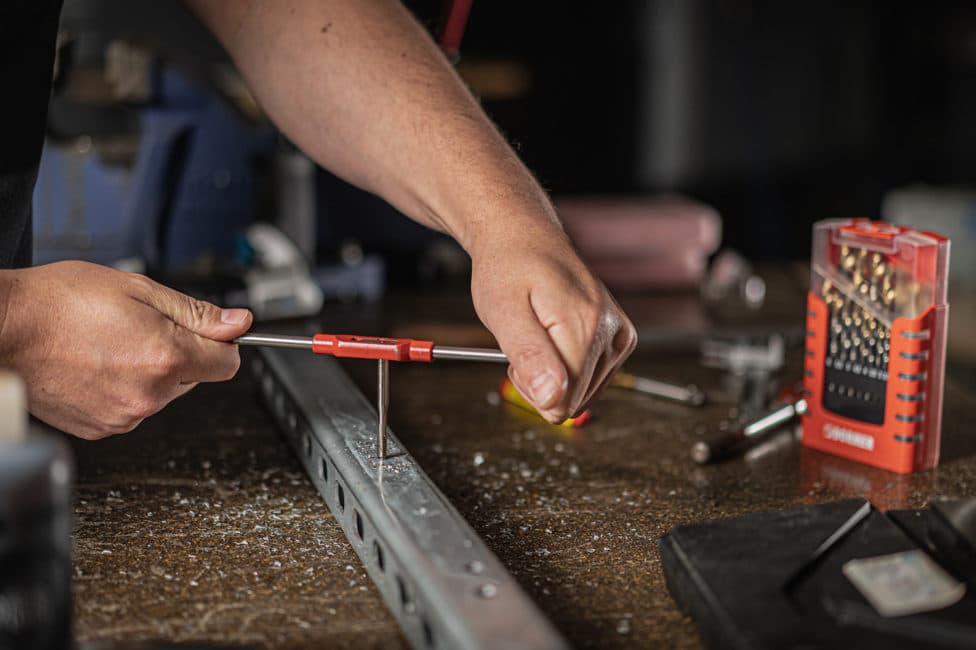Locksmithing is a rewarding career where you will spend time helping people sure their homes and businesses secure their premises against unwelcome visitors. Locksmiths install, repair, adjust and, if necessary, replace locks and similar security systems for residential, commercial and automotive clients. You may be called out at all hours to work on jobs inside people’s homes, such as fixing window or door locks. Alternatively, you may fix locks for commercial businesses. As a result, the role will involve travelling often.
According to Job Outlook, the precisions metal trade, which includes Locksmiths, will experience stable growth over the next five years. The career path also offers good progression opportunities to those with a flair for the trade. After you have obtained your Certificate III qualification and have several years of experience under your belt, you can apply for roles at national locksmith companies or specialise in a specific type of security, such as domestic, commercial, or automotive locksmithing. Furthermore, if you have an entrepreneurial spirit, you may consider creating your own locksmithing business.
Typical Duties of a Locksmith Apprentice
Locksmith apprentices will identify worn or damaged lock systems and install, maintain, repair and modify locking systems to ensure they adhere to operational standards. Day-to-day tasks will include assessing jobs and estimating the cost of work, removing defective locks and replacing new ones, fitting locks to windows and doors, cutting keys and repairing locks on vehicles all under the supervision of qualified locksmithing professionals.
Typical Entry Requirements
You can become a Locksmith without formal qualifications if you can demonstrate your suitability for the role to an employer. However, most Locksmiths undertake a Certificate III or IV apprenticeship to gain the skills and experience required. For example, 72.5 per cent of Locksmiths in Australia have a Certificate III or IV qualification.
You would excel as a Locksmith if you pay attention to detail, have the ability to use machines and tools, possess good interpersonal skills and remain calm in stressful situations. Ideally, you would be comfortable working at all hours of the day, as you will need to respond to call-outs at short notice. You should also be prepared to spend time working outdoors in all weather conditions.
Qualified Locksmith Average Wage
A qualified full-time, non-managerial Locksmith earns a median of $1,149 per week before tax. However, this figure varies depending on the state in question:
Sydney, New South Wales: AU$25.43 per hour.
Melbourne, Victoria: AU$22.00 per hour.
Brisbane, Queensland: AU$23.98 per hour.
Darwin, Northern Territory: AU$34.42 per hour.
Perth, Western Australia: AU$34.82 per hour.
Canberra, Australian Capital Territory: AU$33.86 per hour.
Hobart, Tasmania: AU$25.94 per hour.
Entry-level Locksmiths can expect to earn around $55,000 per year, increasing to $75,000 after one to three years of experience. After eight years of experience, senior salaries may increase to approximately $91,000.
How to Become a Locksmith
If you have decided to pursue a career in locksmithing, you should undertake an apprenticeship with an employer in the industry. Depending on which state you live in, you may have to obtain licenses to work legally as a Locksmith. For example, in Western Australia, you need to get a Security Installer License to practice the trade.
The eligibility requirements for the Security Installer License are as follows:
- You should be at least 18 years old.
- You should be a fit and proper person.
- You should have evidence that you have completed a relevant training course in locksmithing.
How to Find and Get a Locksmith Apprenticeship
If you are considering an apprenticeship, your first point of contact should be Australian Apprenticeships. The organisation can point you in the direction of a certified Apprenticeship Network provider and a registered training organisation, both of which you will require to commence an apprenticeship.
Apprenticeship Network providers, such as MEGT, Sarina Russo Job Access and the BUSY Group, will help you find a suitable employer and a certified registered training organisation to complete your training. Additionally, providers will provide a legal document for both you and the employer, and they will help you locate applicable funding schemes based on your eligibility.
Certificate III Locksmith
Completing a Certificate III Locksmith qualification will equip you with the skills and experience to install, repair, maintain and modify locking systems to ensure they meet industry standards.
Training will involve:
- Undertaking manual handling.
- Performing engineering measurements.
- Using hand and power tools.
- Producing keys.
- Installing and maintaining door control systems.
- Planning and preparing master key systems.
- Practising good customer service.
The apprenticeship will take around 48 months to complete. You can learn more about the training involved in a Locksmith apprenticeship here.
Certificate III Electric Systems Locksmith
Undertaking a Certificate III Electric Systems Locksmith qualification will enable you to use equipment and tools to repair and maintain electric security and locking systems to ensure they meet strict operational standards. Electric Systems Locksmiths will install, modify, repair and replace electric, key-less entry systems and perform security surveys to determine whether a property is adequately secure.
Training will involve:
- Performing computations.
- Interacting with computing systems.
- Conducting site surveys.
- Installing, testing and diagnosing issues on electric security systems.
- Gaining entry to residential and commercial properties.
- Servicing and repairing security systems.
The apprenticeship will take approximately 48 months to complete. You can learn more about the training involved in an Electric Systems Locksmith apprenticeship here.
Start Your Locksmithing Career Today with an Apprenticeship
If you want to become a Locksmith, undertaking an apprenticeship will give you the skills and expertise you need to excel in the role. To learn more about the job, including what you can expect during training and career progression prospects, please visit the Australian Apprenticeships and Australian Apprenticeship Pathways websites for more information.


